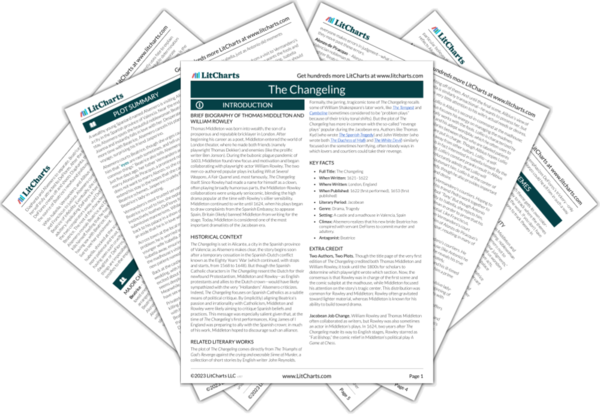Again, Lollio’s ability to surprise Antonio with the depth of his own knowledge recalls the overlapping asides from earlier scenes. In this play, there are so many transformations and deceptions that no character can ever really know who holds the truth. Antonio’s threat to “change condition” echoes the play’s title, while Lollio’s insistence that he will not “forbear the gentleman” underneath the fool establishes the true source of his authority—though Lollio has no more status or skill than Antonio, he does have the power to do more violence.
